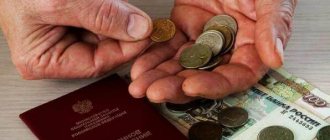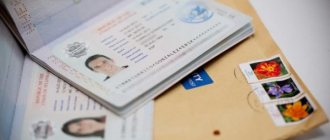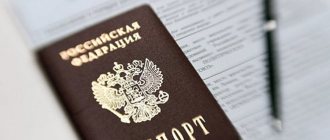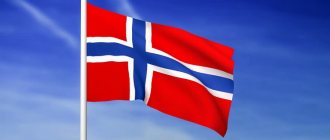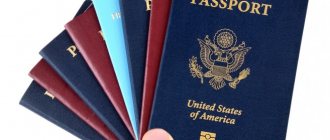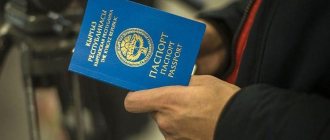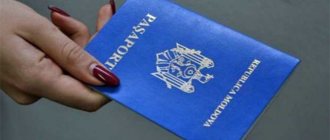Obtaining a residence permit (RP) is the next stage of legalization of a foreigner in the host country. To obtain a residence permit in Russia, you need to live in the country for a certain period of time, pass an exam for a residence permit, obtain a certificate of knowledge of the Russian language and present it to the migration service, among other mandatory documents. These are the requirements of Federal Law No. 74-FZ.
What does a residence permit provide?
A residence permit (residence permit) is a document that allows a foreigner to live and work in the host country. With the exception of the opportunity to elect and be elected, as well as to hold a number of government positions, the holder of such a document has the same rights as a citizen of the Russian Federation. On the territory of Russia, a residence permit is a document proving the identity of a foreigner. Unlike a temporary residence permit, which is a stamp in the national passport of a foreign citizen, or a document for stateless persons, a residence permit is always a separate document.
Read more about what a residence permit looks like and what rights it provides.
Topic 3. Entry into and exit from Russia, stay and residence of foreign citizens in the Russian Federation
1) What is the main identification document?
The main document is a passport of a foreign citizen or another document established by federal law or recognized in accordance with an international treaty of the Russian Federation as an identification document of a foreign citizen.
2) What document do foreigners fill out at the checkpoint across the state border of the Russian Federation?
Migration card.
3) How long after arriving in Russia do I need to register at my place of stay?
As a general rule, you must register for migration within 7 working days from the date of entry into the Russian Federation. However, some foreigners may register later:
- Citizens of states that are members of the EAEU (Belarus, Kazakhstan, Armenia, Kyrgyzstan - within 30 days from the date of entry into the Russian Federation;
- Citizens of Tajikistan - within 15 days from the date of entry into the Russian Federation.
4) Who should register a foreign citizen at his place of stay in the Russian Federation?
Federal Migration Service of the Russian Federation (FMS).
5) How long does it take to provide the state service for migration registration in the Russian Federation?
On the day of application.
6) How is the period of temporary stay of a foreign citizen in Russia determined?
The period of temporary stay of a foreign citizen in the Russian Federation is determined by the validity period of the visa issued to him. The period of temporary stay of a foreign citizen who arrived in the Russian Federation in a manner that does not require a visa cannot exceed ninety days.
7) Who submits an application for a temporary residence permit in the Russian Federation and in what form?
The application can be submitted in person to the migration service of a constituent entity of the Russian Federation, or in the form of an electronic document.
 What is the validity period of a temporary residence permit in Russia?
What is the validity period of a temporary residence permit in Russia?
RVP lasts from 1 year to 3 years.
9) When is an already issued temporary residence permit not issued or cancelled?
Due to violation of the legislation of the Russian Federation.
10) For what period is a residence permit issued?
The residence permit is issued for 5 years.
Receipt procedure
To obtain a residence permit in Russia, you must meet a number of conditions:
- Legal residence in the Russian Federation for at least a year - confirmation is usually a temporary residence permit.
- Official sources of income. Thus, you will have to provide proof, which could be an entrepreneur’s patent, a certificate from your place of work, or a document stating that you imported a significant amount from abroad.
- Registration at the place of residence for a period of at least five years.
- Certificate for a residence permit, to obtain which you must pass an exam on knowledge of the Russian language, legislation and history of the Russian Federation. The document must be submitted to the territorial unit of the Main Directorate for Migration of the Ministry of Internal Affairs of the Russian Federation.
Under the simplified procedure, residence permits can be obtained by people recognized as native speakers of the Russian language, citizens of Belarus, as well as highly qualified foreign specialists invited to Russia under a work contract (and family members of such specialists).
Read more about how to obtain a residence permit in Russia.
What does the exam consist of?
The exam for obtaining a residence permit is complex. It is divided into three blocks - these are tests for knowledge of the Russian language, the history of the Russian state and the fundamentals of the country's legislation. The written assignment for a residence permit is offered only as part of the language proficiency test. The total duration of the exam is 135 minutes. 75 minutes are allocated for testing in the Russian language, 30 minutes are allocated for each of the two remaining tests.
What are Subject Tests?
The most extensive part of the comprehensive exam is the test of knowledge of the state language of Russia. Russian language tests for foreigners for a residence permit are five blocks, namely:
- Test for knowledge of vocabulary and grammar. Questions and answer options are provided.
- Reading test. A text and several answer options are given.
- Spoken speech comprehension test. You will listen to the information and choose the correct option from several answers.
- Writing test. You must fill out the provided forms.
- Speaking test. You will be asked to conduct a conversation, which will be recorded audiotape.
History tests for migrants for residence permits are a block of twenty questions. You also need to answer twenty questions on the basics of Russian legislation.
How to prepare and pass the exam
Test centers for foreigners are examined. To get tested, you need to fill out an application and make a payment. Take with you an identity document and a photocopy of it, a migration card, and a pen with blue ink.
Citizens of other states must know the basics of the language, legislation and history of Russia.
To successfully complete tasks, the emphasis should be on language - the module includes five components. History and legislation - one component each.
The centers provide assistance in preparation. The duration of training depends on the initial amount of knowledge. Migrants with good Russian have the easiest time passing the tests - they only have to learn history and legislation. Accordingly, for those who do not know the language at all, learning takes longer.
During preparatory classes, students do a trial version and test their knowledge. This is what teachers base their teaching on. Express training courses take one working week. Necessary knowledge
Russian language testing for foreign citizens: grammar, reading, listening, writing, speaking.
Examinees must be able to:
- read small texts: advertisements, signs, brochures;
- write simple texts, fill out forms and questionnaires;
- understand dialogue and significant details by ear;
- correctly express thoughts in dialogue.
On the history of Russia: know important dates, for example, the baptism of Rus' and the Great Patriotic War. Famous figures: Peter the Great, Yuri Gagarin, Alexander Nevsky. Religions in the Russian Federation, social traditions and development features.
On the basics of law: know your rights, duties and freedoms, the fundamentals of the constitutional system of the Russian Federation, civil, family and labor codes.
How the test is scored
The results of the examination for obtaining a residence permit are assessed in percentages and points. Tests for knowledge of history and legislation of the Russian Federation allow you to get a maximum of 100 points or percent. For each test you must earn at least 75%. The assessment system for the Russian language test is more complex. For each block you must score at least 80%. However, in terms of points, this figure is different for each block. For the first it is 40 points, for the second – 48, third – 56, fourth – 32, fifth – 64 points.
In total, to successfully pass the test you must score at least 240 points.
If the test is passed successfully, within five working days you will become the owner of a certificate of knowledge of Russian as a foreign language. This document will be required when applying to the migration service.
What documents are needed and what the exam looks like
Order of the Ministry of Education No. 1156 approved the list of required documents. You will need a passport, a copy, translated into Russian and an application.
The exam itself consists of three modules. As already mentioned, the questions are aimed at identifying knowledge of language, history and law. We would like to note that passing the exam involves more than just answering questions. So, in the language block it is necessary to confirm the language reserve, grammatical knowledge, the ability to read and perceive information by ear, express thoughts in writing, and be able to communicate orally.
Be prepared to compose and conduct a monologue or dialogue, read everyday and business texts.
The questions from the historical block coincide with the school curriculum. Don't forget that the questions themselves often contain clues. As for legal issues, you have probably already encountered many of them. For example, with migration law.
Documents for testing
To get tested, you need to sign up for it and pay (you can do this at the bank and bring a receipt or pay on the spot). You must have with you:
- National passport.
- A photocopy of this document (first page and page with temporary residence permit and registration).
- Two files for documents.
- Pen with blue ink. Better take two.
The cost of passing the residence permit exam is currently 5,300 rubles.
How to prepare for the exam
Preparing for the residence permit exam is a crucial moment. Not all Russian citizens could easily cope with it if they had such a need. Therefore, even if you graduated from school during the Soviet era and received a gold medal, still refresh your knowledge. There are many preparation methods. These include independent studies and lessons with a tutor, the main thing is a positive result. From this point of view, probably the best option is training in courses at official testing centers. You can also take a trial exam there. All these procedures are paid, but they are worth it.
Where to find materials
You can easily find materials for preparing for the comprehensive residence permit exam, including self-preparation, on the Internet. They are represented mainly by centers that have the right to conduct such an exam. You just need to be prepared for the fact that the volume of material is quite significant. For example, one of the centers for preparing for the Russian history exam offers four impressive blocks of information. Of course, there is a lot of information on the Internet in the format “all the questions and answers of tests for a residence permit,” but the question of how much you can trust it remains open. In addition, so-called residence permit tickets are often found both online and in printed publications. But still, as we have already noted, preparation at the testing center where you plan to take the exam is the best option.
Where can I get tested?
Most migrants seek to gain a foothold in large Russian cities, since it is easier to find work there and the salaries are higher. For this reason, the most frequently asked question is where to take the residence permit exam in Moscow. Let's answer it.
In the capital of the Russian Federation, as in other regions of our country, most of the centers for conducting such testing operate at large, reputable educational institutions. In particular, in Moscow, the Peoples' Friendship University of Russia (RUDN) conducts testing for residence permits. For specific addresses of testing centers that are most convenient for you, see the link. The Russian Federation takes this comprehensive exam very seriously. Therefore, to pass it and further receive a certificate of knowledge of the Russian language, you will have to come to the assessment center in person. However, as a practice, you can also take the test for the residence permit exam online. There are many sites offering such a service.
Who is exempt from taking the exam?
Foreign citizens are exempt from taking the exam if they:
- are incapacitated or have limited capacity;
- have not reached the age of 18;
- have reached the age limit – 65 years for men and 60 years for women;
- are participants in the State program for the resettlement of compatriots to Russia (the benefit also applies to family members);
- highly qualified specialists working in Russia under contracts and full-time students.
A more detailed list of these persons can be found in Articles 132 and 134 of the Federal Law “On the Legal Status of Foreign Citizens in the Russian Federation”.
Article 13 of the Criminal Code. Extradition of persons who have committed a crime
- Citizens of the Russian Federation who have committed a crime on the territory of a foreign state are not subject to extradition to that state.
- Foreign citizens and stateless persons who have committed a crime outside the Russian Federation and are located on the territory of the Russian Federation may be extradited to a foreign state for prosecution or serving a sentence in accordance with an international treaty of the Russian Federation
4) Do foreign citizens in the Russian Federation have the right to elect and be elected to government bodies?
Dont Have.
5) Can foreign citizens be called up for military service in the Russian Federation? Can foreign citizens enroll in military service under a contract in the Russian Federation?
Foreign citizens cannot be called up for military service in the Russian Federation, but can enter military service in the Russian Federation under a contract.
6) Does the right to freedom and personal security apply to foreign citizens in Russia?
Yes.
7) Do men and women in the Russian Federation have equal rights in the sphere of labor and employment?
Yes.
 Do men and women in the Russian Federation have equal rights in healthcare?
Do men and women in the Russian Federation have equal rights in healthcare?
Yes.
9) On what basis and to what extent is medical assistance provided to foreign citizens? What determines the volume and procedure of medical care for foreigners?
Foreign citizens who have a work permit, temporary residence permit or residence permit are provided with medical care in the same volume as Russian citizens. If a foreign citizen has entered the Russian Federation for a short time, free assistance will only be available if there is a threat to life. In other cases, you need to pay to visit a doctor. Paid services are provided in almost every medical institution.
10) Are persons temporarily staying in the Russian Federation entitled to benefits from the Social Insurance Fund?
Insurance premiums are paid only on payments to foreign employees who permanently or temporarily reside in the Russian Federation. At the same time, foreign citizens temporarily staying on the territory of the Russian Federation are not insured persons in the compulsory social insurance system.
11) Is the right of private property recognized in the Russian Federation? In what case can a person be deprived of property in the Russian Federation?
In the Russian Federation, the right of private property is not only recognized, but protected by law. On the territory of the Russian Federation, every person has the right to have property, own, use and dispose of it, both individually and jointly with other persons. Deprivation of property can only be carried out by a court decision. Forced deprivation of property for state needs can only be carried out under the condition of equal and advance compensation.
12) Can foreign citizens engage in entrepreneurial activity in Russia?
A foreign citizen can engage in entrepreneurial activities.

